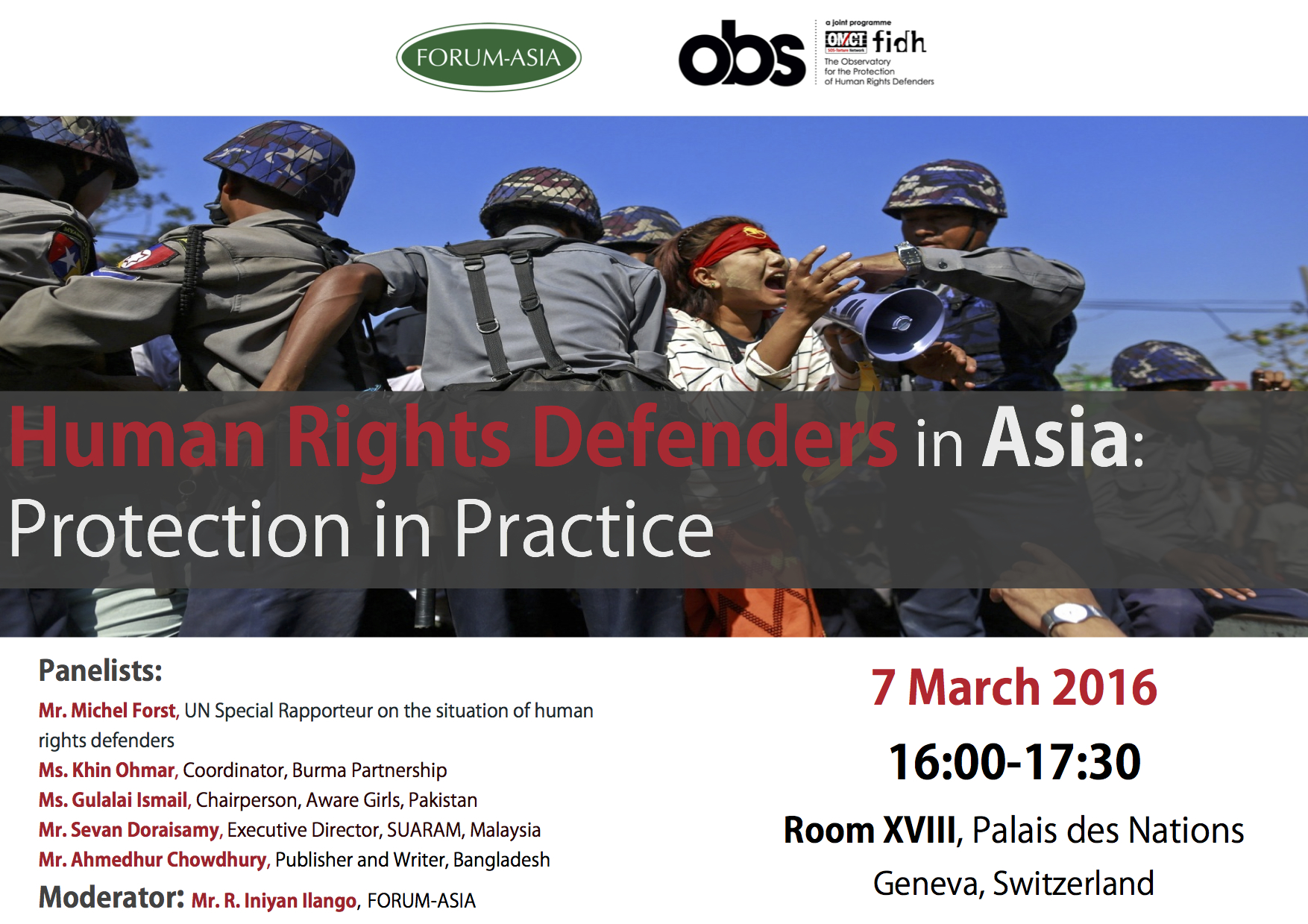 As people working on the frontlines of human rights work, human rights defenders (HRDs) often face daunting risks in carrying out their daily activism and community engagement. We continue to witness brutal murders, enforced disappearances, torture, arbitrary detention, judicial harassment and intimidation against HRDs. They face threats from both state and non-state actors including large companies and businesses.
As people working on the frontlines of human rights work, human rights defenders (HRDs) often face daunting risks in carrying out their daily activism and community engagement. We continue to witness brutal murders, enforced disappearances, torture, arbitrary detention, judicial harassment and intimidation against HRDs. They face threats from both state and non-state actors including large companies and businesses.
Like in many other parts of the world, protection of HRDs continues to be a key issue and challenge in the Asian human rights movement. While protection of HRDs should be top priority given the pivotal role they play, in the past we have seen how it’s often an uphill task even to get states to acknowledge their important and legitimate role.
These challenges came to the fore again in November 2015 when for the first time in its 16-year history a vote was called on the UN General Assembly resolution on HRDs. This after the resolution first tabled in the UNGA’s Third Committee was opposed by 14 countries, while 40 others abstained. The resolution titled ‘Recognising the role of human rights defenders and the need for their protection’ encouraged Member States to take measures to protect and support HRDs, their family members, associates and legal representatives at all stages of their work. Though the resolution was finally adopted in the UNGA it highlighted the institutional challenges that HRDs face in their work
The shrinking space for civil society has only further exacerbated these challenges.
Some of the key protection-related challenges faced by HRDs in Asia include:
- Lack of institutional support for HRDs including absence of robust national protection;
- Lack of regional support or options for HRDs who need to be temporarily relocated in mechanisms or strong NHRIs/constitutional bodies that can hold states accountable. cases of emergency support;
- Long term solutions that create safe spaces or protection mechanism for HRDs at risk in order to ensure they are able to continue their engagement on key human rights issues;
- The need for the UN Resident Coordinator system to be stronger on human rights work nationally despite human rights being distinctly a part of its mandate. (National activism is very important);
- Impunity for violations against HRDs only emboldens repeated abuse;
- Lack of checks on non-state actors such as big businesses that are coming into direct confrontation with HRDs working on corporate accountability or community-based HRDs;
- Weak regional human rights mechanisms such as AICHR fail to provide an extra layer of protection for HRDs.
In this context the side event will attempt to:
- Identify major protection challenges facing HRDs especially in key South Asian and Southeast Asian countries;
- Propose changes and interventions to improve the support structure for HRDs across thematic areas;
- Examine some good practices in the Asia region that attempts to create an enabling environment for HRDs and how this could be used for regional or global advocacy.
Title: Human Rights Defenders in Asia: Protection in Practice
Date/Time: 7 March 2016/ 16:00 -17:30
Venue: Room XVIII, Palais des Nations, Geneva, Switzerland
Panelists:
Mr. Michel Forst, UN Special Rapporteur on the situation of human rights defenders
Ms. Khin Ohmar, Coordinator, Burma Partnership
Ms. Gulalai Ismail, Chairperson, Aware Girls, Pakistan
Mr. Sevan Doraisamy, Executive Director, SUARAM, Malaysia
Mr. Ahmedhur Chowdhury, Publisher and Writer, Bangladesh
Moderator: Mr. R. Iniyan Ilango, FORUM-ASIA



